Among the warning signs I’ve learned to spot, one in particular always makes my alarm bells ring: when an adult claims they never want to grow up. What is meant by that phrase? In the people I’ve encountered, it usually masks a lack of personal stability — a way of dressing up avoidance as something noble or adventurous. When someone insists they don’t want to be an adult, it often signals a reluctance to accept the duties adult life demands: taking responsibility, turning up to work when exhausted, paying the bills, and resisting impulses that harm others. Saying “I don’t want to grow up” can sound as if you’re following your heart; it can mean lovely things. But all too often it’s just a romantic gloss over behavior that’s essentially running away. Avoidance masquerading as freedom. In truth, it reflects a childlike mindset — and from hard experience, I can tell you it fails us, both in our own lives and in the relationships we form when we invite such people in hoping for a thrilling taste of liberty that still comes with a dependable safety net. Adults bring steadiness and reliability; they are people who have their lives in order. You realize you’ve confused true freedom with selfishness when you don’t feel liberated at all — you feel cheated, deserted, ashamed, or left behind. People talk about the “inner child” as a useful metaphor for healing trauma, and that can be helpful. But that approach also assumes an inner adult who can repair and care for the child. I’m not a therapist, and nothing I say replaces professional help, but I’ve had to pull myself together repeatedly, at many different levels. Unlike some who were hurt as children, I had blind spots that led me to attach to emotionally immature people. I also bought into the idea — a cultural rhetoric — that growing up and getting your act together was somehow old-fashioned or repressive. I learned, painfully, that taking responsibility for life is not the enemy of freedom; it’s the very condition that allows real freedom to flourish. Responsibility lets us become strong, fully expressed adults. Early trauma creates countless obstacles to owning our lives, and culture often encourages blaming others for our difficulties. Yes, people hurt us — but they aren’t going to arrive now and straighten everything out for us. They can’t give us a second childhood or undo the past. That ship has sailed. Still, we can find happiness and fulfillment, but not if the child inside is running the show. When the child dominates, the adult life you want — stable relationships, financial competence, emotional steadiness — remains out of reach. I think when people say they never want to grow up, what they’re aiming for is a life that feels carefree, authentic, and unbitter — not burdened like some negative parental figure. Yet if your relationships feel unstable, if you’re frequently broke, angry, disappointed, or feeling unfairly rejected and overlooked, it’s worth examining whether unhealed childhood wounds have anchored you in old patterns and stopped you from becoming the grown-up you need to be. Like many, I was forced into adult responsibilities in some ways far too early. I saw things children shouldn’t — adults using drugs, violence, sexual situations, and there were often empty cupboards. I had babysitting duties late at night because no one else was around. Long before my teens, if I wanted money I had to earn it — for clothes, food, or even art classes at the community center — so I ran little businesses as a kid. That taught grit, but not necessarily maturity. The phrase “growing up fast” often means learning to be tough, not learning emotional adulthood. That’s why I sometimes describe childhood PTSD as a sort of developmental delay: not a delay in walking or talking, but in the timeline for emotional maturity. Many of us are street-smart but unclear about how to steer our lives responsibly. Some remain stuck in an extended adolescence, endlessly fighting with parents for recognition of their hurt, trying to extract approval and love that never came in childhood. Healing from that wound is part of becoming mature. Often parents won’t change, or they won’t offer what we want. You can still recover — it’s difficult, but it doesn’t have to take forever. It begins by considering that the wounded child inside might be undermining the adult you must be today. How can you tell if this is happening? Look at markers of adulthood. First: do you have an identity that stands apart from your parents’ influence? You may choose similar values or social affiliations, and that’s fine, but adulthood includes finding your own convictions and deciding how you want to live, even if it differs from your family’s path. That discovery doesn’t require fury toward your parents; it simply means accepting that everyone has the right to be themselves. Some people stay childlike by clinging to dependence — financial, residential, or emotional — and by replaying what their parents said or did, letting past judgments determine present happiness. If those old wounds still dictate whether you can enjoy life today, the child in you is blocking your adulthood. Those hurts were real, but to embrace adult freedoms you must also face the limitations they created — the parts you can change. It isn’t your fault you were harmed as a child, yet if you want meaningful, reciprocal connections now, you need to move out of the identity of being at war with the past. Many remain trapped in the belief that the past still defines them, or in the fantasy that parents must now make restitution for the trauma — apologize, acknowledge, or help you rebuild. That fight is a losing one: parents rarely change because of our pressure, and fake apologies rarely fulfill the need. The real miracle you seek is internal — the freedom to be unburdened and to build the life you deserve. For some, this means cutting ties with parents; for others, it’s not necessary. Reducing fear and resentment increases your capacity to enjoy people who once infuriated you. Honestly, people respond better to you when you put down your sword. Stopping the demand that others compensate or validate you is uncomfortable for them, but it’s a core adult move: we work on ourselves, set boundaries, and accept that people are who they are. We can ask for change, but we can’t force it — that’s part of adult freedom. Adults also get to create identities independent from their parents, which is central to getting oneself together. There’s a kind of casual freedom that comes with adulthood — doing what you want within the law: wearing provocative shirts, trolling on the internet, eating junk food, or distancing yourself from people who disapprove. But that’s not the freedom worth stretching for now. The deeper freedom I mean always involves a price: responsibility. Adult privileges — sexual autonomy, earning an income, making a home, forming a partnership or family, serving your community — come with obligations. If you yearn for those things but seem unable to obtain them, the child in you may be steering the ship. It might be time to rise to the responsibilities whose reward is the fuller freedom of putting the past behind you and becoming your autonomous grown-up self. That’s another way of saying: get your act together. Most of us want that consciously, but childhood PTSD can make the work required feel overwhelming. What if you fail? What if you succeed and then make mistakes while everyone watches? What if old coping patterns reappear when stress hits and there’s no longer the option to hide by staying in bed or driving away in the night? These fears are familiar, especially to those who were traumatized young. The task is to resist the triggered reflexes that rob us of so much. At some point, past events stop being an adequate explanation for everything gone wrong. Yes, there are real challenges: social awkwardness, money troubles, gaps in education, health issues, depression, ADHD, not knowing influential people, or uncertainty about job or dating etiquette. Those things were not your fault, and they’re real. But growing up in those voids doesn’t mean you’re stuck there forever. You can learn and improve. Every day spent surrendering to helplessness and blame is a day wasted. Want to learn to interview well? Look up interviews on YouTube. Want help with dating? Read books or take a course geared to people who experienced childhood trauma. Don’t give up by saying, “I was never taught this.” That’s true for many of us, but we can still learn. Your survival instincts once served you; now they may be blocking your true self. You can protect yourself in new ways — by opening up capacities, practicing, learning, and aiming for adult milestones: steady work, financial autonomy, participating socially, expressing yourself and listening with grace, building intimacy, or forming a family if that’s what you want. There are no guarantees you’ll reach every goal or avoid missteps, but don’t allow your better self to collapse into bitterness and helplessness. Strive for the freedom you were meant to have and take your place among the people who strengthen others’ lives around the world. If you suspect early trauma is holding you back but you’re unsure how, review the list of signs I’ve put together — you can download it for free right there. I’ll see you very soon. [Music]
Practical Steps You Can Take Right Now (in 15 minutes)
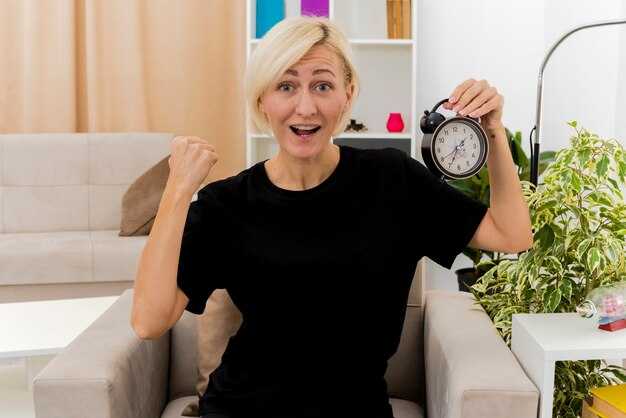
- Do a 3–5 minute grounding: name 5 things you see, 4 you can touch, 3 you can hear, 2 you can smell, 1 you can taste.
- Make one small, concrete to-do: email a potential contact, update your resume bullet, or tidy one surface. Put it on your calendar for today.
- Spend five minutes checking your bank balance and list one tiny financial step (cancel a subscription, set a $10 transfer to savings).
- Text or call one supportive person and say, “Can I check in with you later?” — a simple social connection lowers isolation.
- Watch a short tutorial (5–10 minutes) on a skill you want: interviewing, budgeting apps, or basic cooking.
A Simple 4‑Week Starter Plan
- Week 1 — Stabilize: Create a basic daily routine: wake time, one healthy meal, 10 minutes of movement, and a bedtime. Track it with a simple checklist.
- Week 2 — Practical autonomy: Open or organize financial accounts; schedule one job-search or educational activity; update or draft a one-page resume.
- Week 3 — Relationships & boundaries: Practice short boundary scripts (see below) and limit one toxic interaction each week. Try one honest, calm conversation with someone you trust.
- Week 4 — Professional help & skills: Research therapists or support groups; book a first appointment or join an online course to build a specific skill.
Signs the Inner Child Is Running the Show (quick checklist)
- You frequently feel shame, helplessness, or believe you must be rescued to be okay.
- You replay past hurts in ways that stop you from trying new things.
- You avoid responsibility with excuses like “I was never taught this” without trying small steps to learn.
- You sabotage relationships when they get steady or demand proof of love instead of mutual care.
Short Boundary Scripts You Can Use
- With a parent who criticizes: “I hear that’s how you see it. I’m working on my own path, and I won’t discuss this topic right now.”
- With a friend who borrows too much: “I can’t lend money, but I can help you find resources or look at your budget with you.”
- With a partner who gaslights: “When you say X, I feel Y. I need conversations where we each listen without blame.”
Coping Tools for When You’re Triggered
- Grounding (5‑4‑3‑2‑1), paced breathing (4 in, 4 hold, 6 out), or progressive muscle relaxation for 5–10 minutes.
- Use a safety plan: a short list of people to call, a calming playlist, and a place you can go to be alone and regulated.
- Replace urgent avoidance with a micro-action: send one email, take a shower, or step outside for 10 minutes.
Where to Look for Help and Resources
Therapies that often help with childhood trauma include cognitive behavioral therapy (CBT), dialectical behavior therapy (DBT) for emotion regulation, and EMDR for traumatic memories. Look for trauma-informed therapists through directories like PsychologyToday, local community mental health centers, or university training clinics which can be more affordable. Peer-led support groups and trauma-focused workshops can also be stabilizing.
Books and resources to explore: “Adult Children of Emotionally Immature Parents” by Lindsay C. Gibson; “The Body Keeps the Score” by Bessel van der Kolk; “Complex PTSD: From Surviving to Thriving” by Pete Walker. Apps for daily practice: Insight Timer, Headspace, or simple habit-tracking apps.
If You’re in Crisis
If you are in immediate danger, please call local emergency services. If you are feeling suicidal or in a mental-health emergency, contact your country’s crisis line — in the United States call or text 988 for the Suicide & Crisis Lifeline. If you’re elsewhere, look up your local emergency or crisis support number immediately.
Keep This in Mind
Becoming the adult you need to be is incremental. Small, consistent actions matter far more than dramatic overnight change. Treat learning and recovery like a skill you develop: practice, be patient, ask for help, and give yourself permission to improve imperfectly. Little wins compound into a life that feels freer and steadier — the kind of freedom that isn’t running away but choosing where to go next.


 Give Me 15 Minutes — You’re About to Get Your Life Together">
Give Me 15 Minutes — You’re About to Get Your Life Together">

 If you’re the GIVER, Don’t Neglect THIS!">
If you’re the GIVER, Don’t Neglect THIS!">
 How to Tell It’s Time to Leave Your "Safe" Relationship">
How to Tell It’s Time to Leave Your "Safe" Relationship">
 If You Notice These Behaviours, RUN — They’re Toxic">
If You Notice These Behaviours, RUN — They’re Toxic">
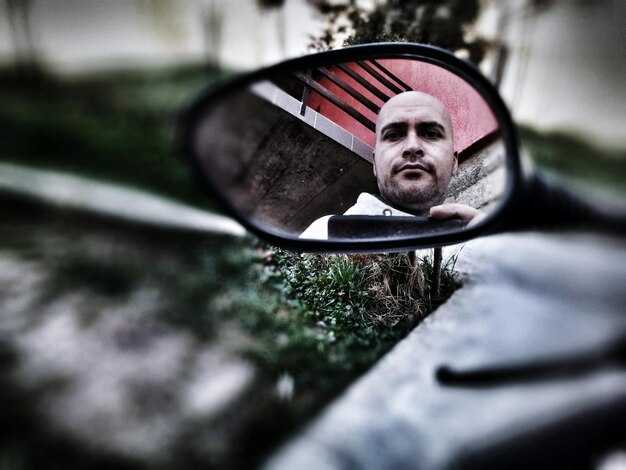 Stop Letting Your Trauma Drive Decision-Making">
Stop Letting Your Trauma Drive Decision-Making">
 ">
">
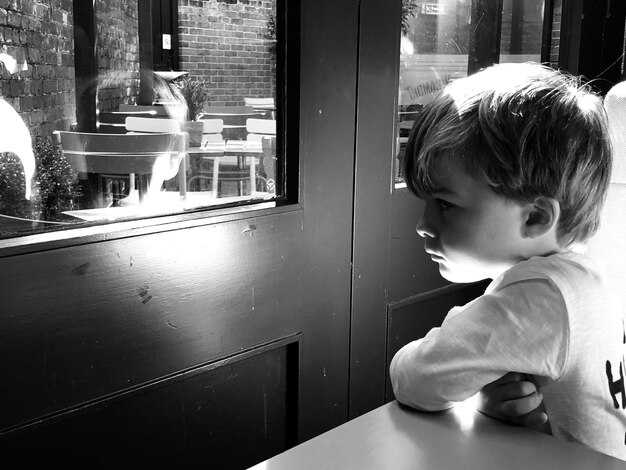 The Childhood Reason You Still Feel Empty Inside">
The Childhood Reason You Still Feel Empty Inside">
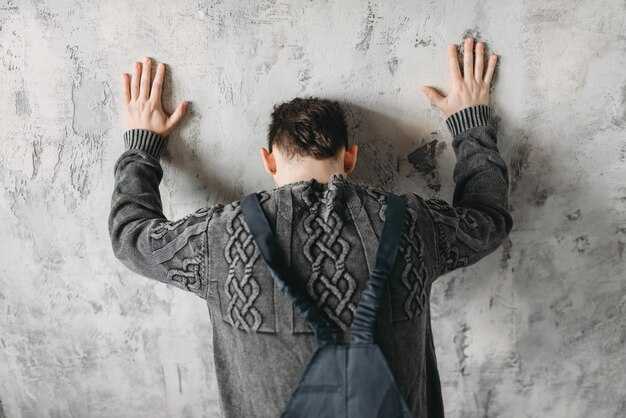 The 5 SHOCKING Stages of an Avoidant Coming Back (Nobody Tells You #5)">
The 5 SHOCKING Stages of an Avoidant Coming Back (Nobody Tells You #5)">
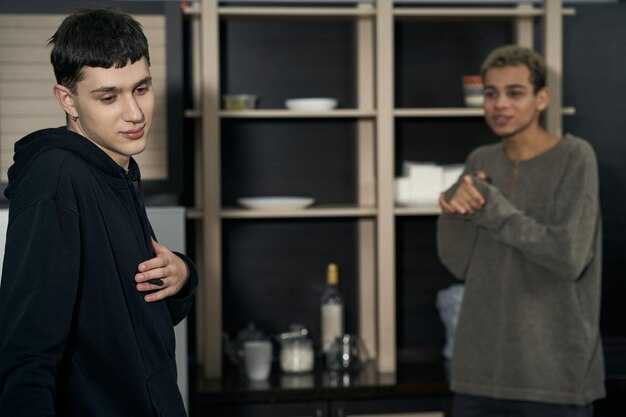 Why Avoidants Disrespect You and The Secret Battle They’re Fighting | Avoidant attachment style">
Why Avoidants Disrespect You and The Secret Battle They’re Fighting | Avoidant attachment style">
 Is My Partner a Narcissist? (Does it matter)">
Is My Partner a Narcissist? (Does it matter)">
 Zasady randkowania, które pomogą CI przestać robić WSZYSTKO dla swojego partnera">
Zasady randkowania, które pomogą CI przestać robić WSZYSTKO dla swojego partnera">